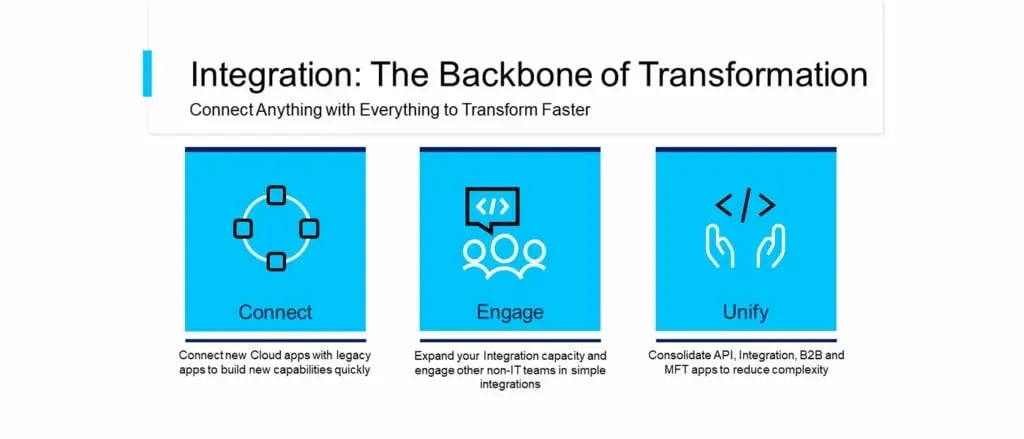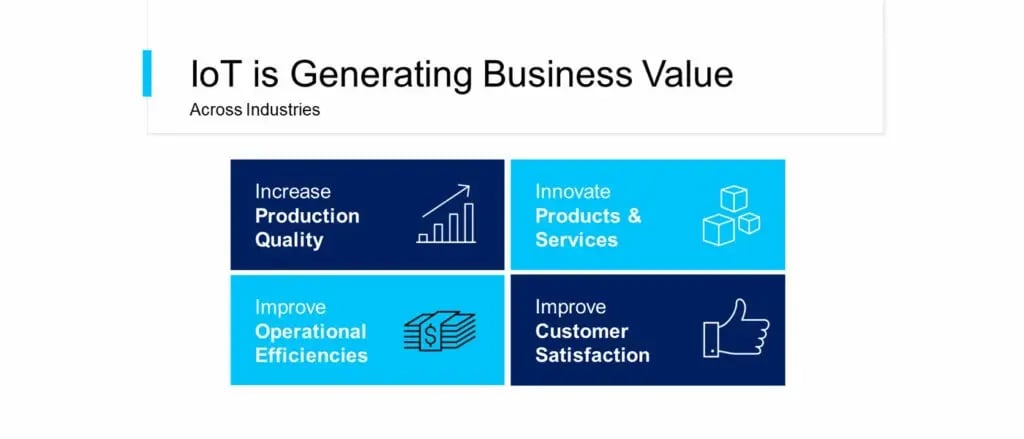Digital transformation is being adopted by businesses of all sizes that wish to be competitive and stay relevant in the evolving technological landscape. Digital transformation refers to adoption of digital technologies to create new business processes or transform existing non-digital processes in response to changing market and customer expectations. Digital transformation improves efficiency, creates innovation, and develops new business models. Its impact is not just on processes but also culture, customer experiences and every facet of business.
However, the concept of digital transformation means different things to different people. In the recent webinar hosted by V-Soft Digital and in partnership with Software AG, experts identified and discussed the three major pillars of digital transformation: APIs, Integrations and IoT. You can watch the video above for the full webinar or catch the highlights below.
APIs
Application Programming Interfaces (APIs) have become the glue that connects everything. APIs can be used to connect apps to orchestrate business processes and securely exchange data. APIs are at the heart of digital business and at the center of the digitalization process. APIs are known to deliver the following benefits:
- Digital Business Connectivity
- Secure API Orchestration
- Connected Customer Experience
- API-based Ecosystems

Attract and grow developer communities to drive an API-led business model, provide centralized management and visibility of API and microservice initiatives and govern the full API lifecycle for quality and reliability.
Integration
Integration speeds up cloud adoption as new apps can integrate with legacy apps and even mainframes, delivering a superior customer experience. Integration delivers:
- Faster Cloud Adoption
- Multi-Experience Apps
- Connected Legacy Apps
- Better Product/App Experience

Integration is the backbone of digital transformation as it connects everything: cloud apps with legacy apps, engages non-IT teams, and reduces complexities by consolidating APIs.
IoT
Internet of Things (IoT) drives operational efficiency and improves product lifecycle. The data generated by IoT devices provides valuable business information and can be mined and used in several ways to carry out predictive maintenance, optimize performance and provide enhanced customer experience. The benefits of IoT are:
- Operational Efficiencies
- Longer Product Lifecycles
- Better Customer Experience
- New Revenue Models

With IoT businesses can increase production quality, innovate products and services, improve operational efficiencies, and improve customer satisfaction.
Summary
In the webinar, Software AG’s SVP Product Strategy & Business Development, Navdeep Sidhu, VP, IoT Americas, Ricky Singh and V-Soft’s VP of Digital Platforms, Abhimanyu Sood discussed in length the importance of digital transformation in today’s connected world and the three pillars – APIs, Integration and IoT.














